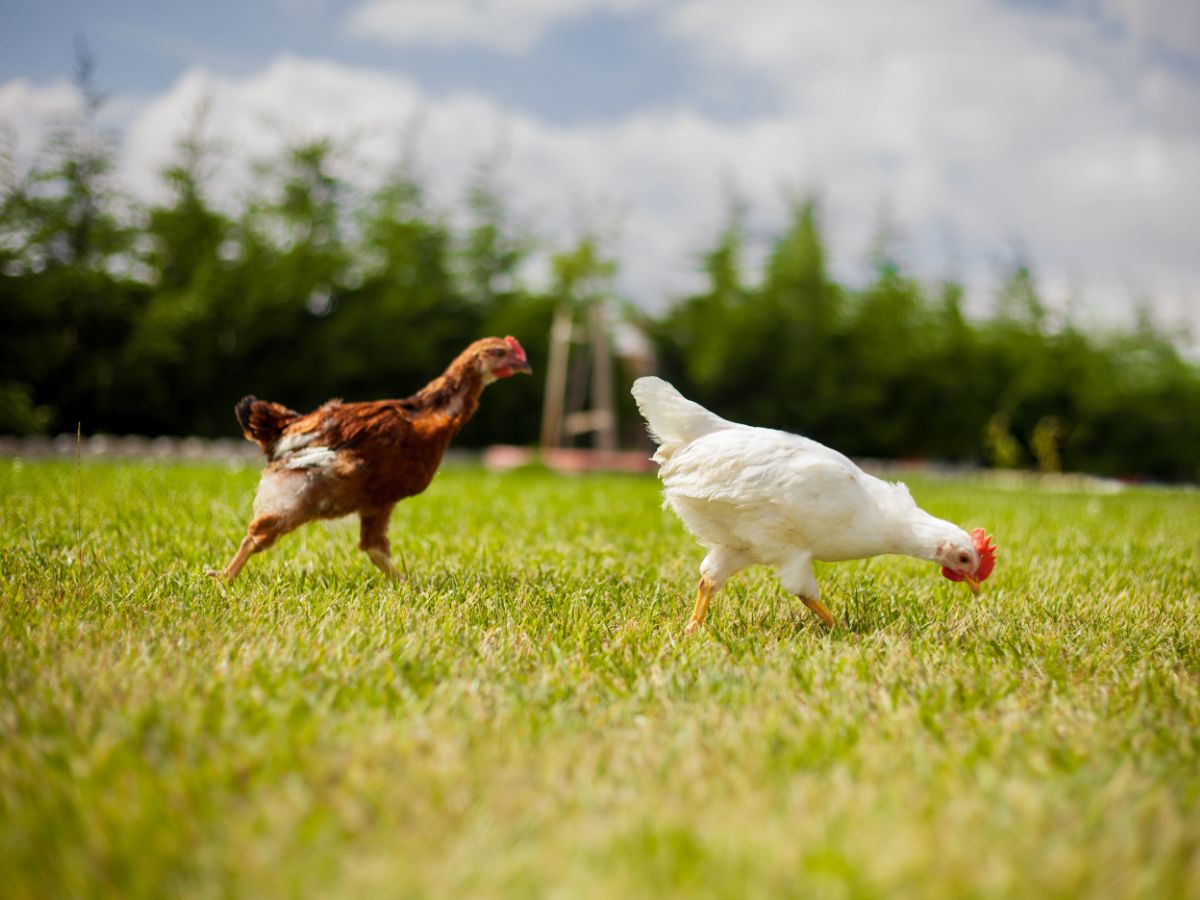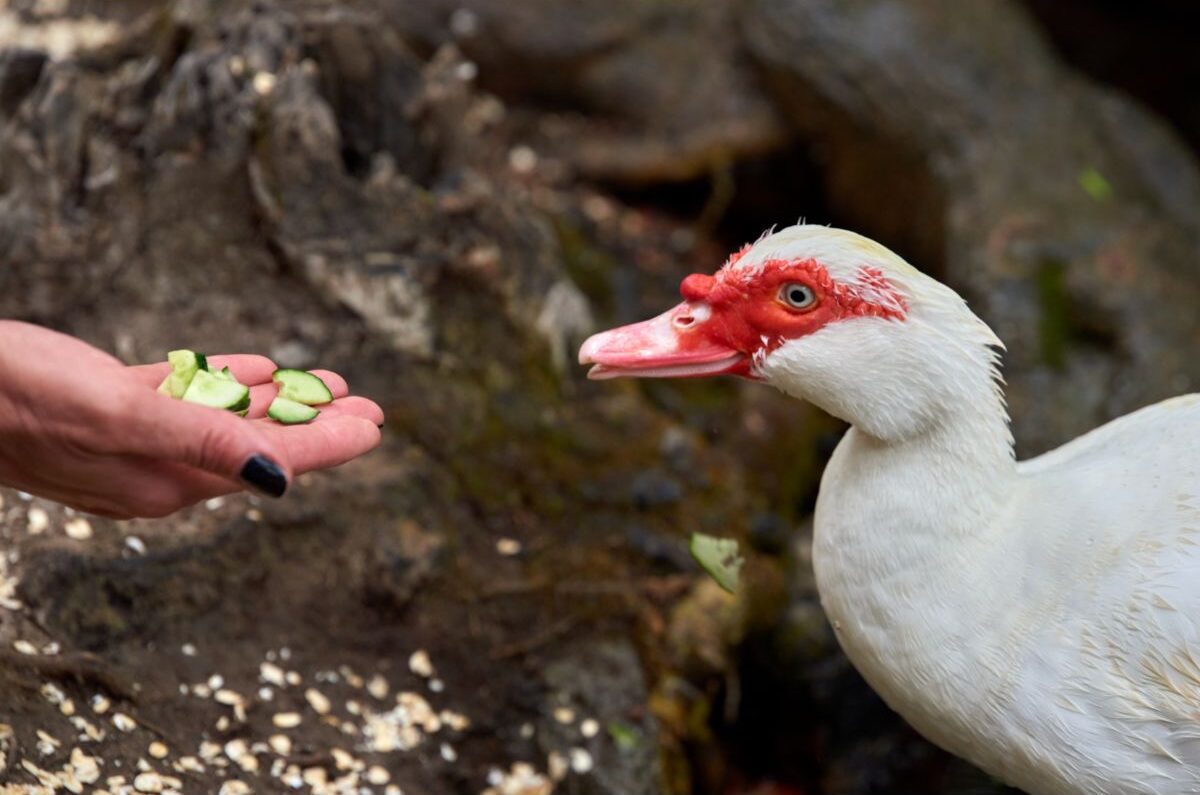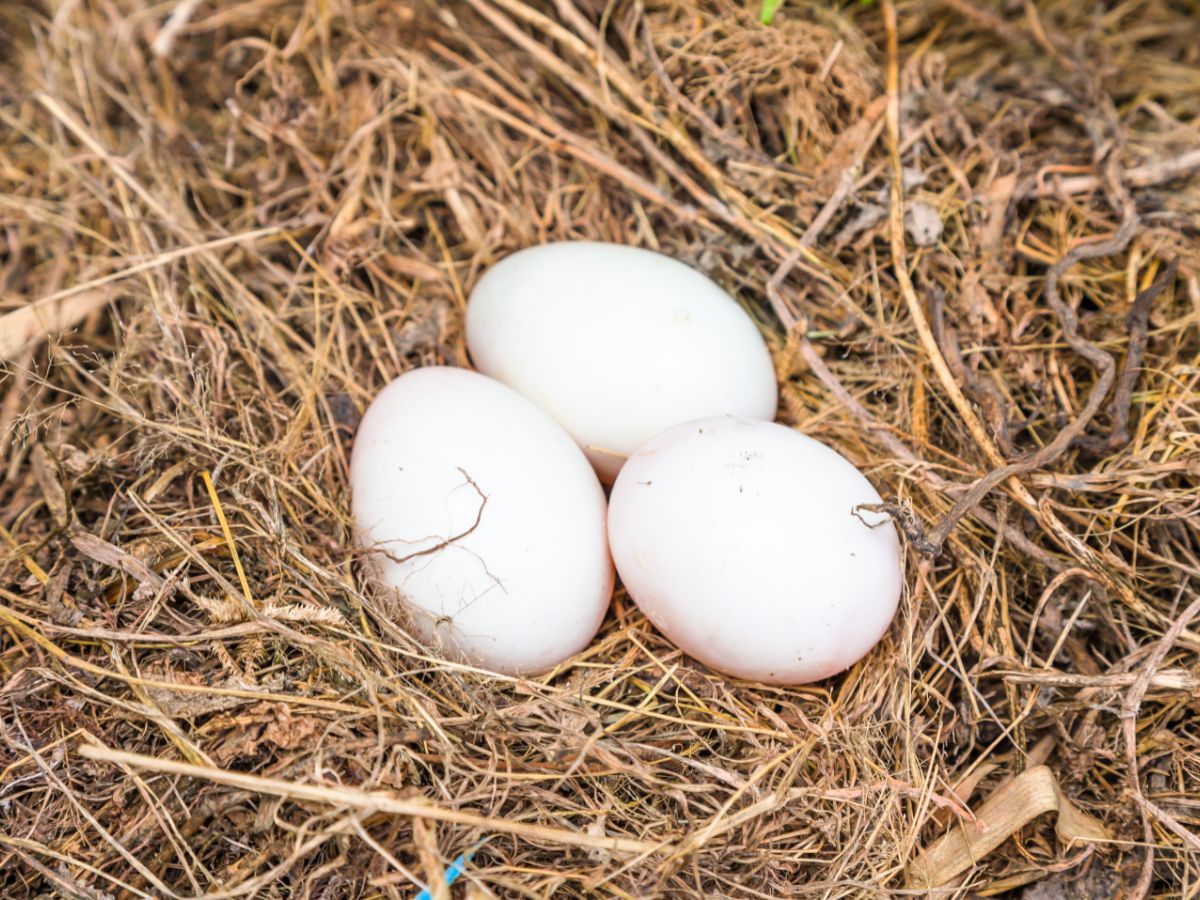When you are new to keeping chickens, it can be very intimidating and stressful because you are scared of making mistakes that may end up harming your chickens. Knowing more about chickens’ behavior, their needs, their health, and what they need in their housing will ensure you don’t make the most common mistakes when keeping chickens.
Some common mistakes people make when keeping chickens include not fencing off their garden, not protecting their chickens from predators, and not feeding the right food. Other mistakes include things like not counting the chickens each night, using the wrong size coop, and moving the coop.
I was interested in what not to do when I first got my chickens, as I wanted to keep my chickens safe and healthy. The first thing I did was research chicken behavior and how to keep them healthy. Then I visited a veteran chicken farmer who gave me helpful advice I wanted to share with other new chicken keepers.
Contents
Most Common Mistakes When Keeping Chickens
When we start a new hobby or business venture, it’s important to know what we are getting into so we can do it properly. Keeping chickens is no exception; in the section below, we will look at the most common mistakes you can make when keeping chickens and how to avoid them.
1. The Wrong Coop Size
The most obvious mistake we will look at is the wrong size coop. When getting your first flock, getting the right size coop is essential to having a healthy flock. Many online stores sell small cute coops, but you need to look closely at these coop sizes as they are often too small for the number of chickens in a coop.
Ideally, chickens need at least 16 sqft of space to roam per chicken and 10 sqft of indoor coop space where they can nest, lay eggs, and sleep. So if you need a coop for ten chickens, you need a coop around 48 sqft in size to keep your chickens happy and stress-free. The more run and sleep space you can give chickens, the better.
2. Not Predator Proofing Their Enclosure
One of the most crucial factors you must remember is predator-proof your coop. The natural predators of chickens include snakes, foxes, coyotes, bobcats, possums, raccoons, bears, wolves, hawks, and owls. Thus chickens need to be protected during the day and at night.
Some of the best ways you can predator-proof your chicken coop to keep your ladies safe are by;
Cordoning Off A Large Area For The Chickens
Cordon off your chicken coop; give each chicken at least 16 sqft of roaming space. Experts suggest incorporating the coop with the outdoor space so it’s easier to keep track of your chickens and for them to feel safe.
When you build the enclosure, give it a ‘ceiling’ to protect the chickens from birds of prey like hawks and owls. You can use hardware cloth that is ½ inch in size as it will protect against snakes and possums. Make it high enough so you can freely walk in the enclosure, and bury it at least 3 feet deep to protect against the predators that digs, such as bobcats and raccoons.
Ensure to avoid chicken wire as it was meant to keep chickens in but won’t keep predators out. Snakes and smaller predators can get into areas enclosed with chicken wire much easier than wood hardwire cloth.
Installing Motion Sensors With Loud Alarms
One effective way to keep predators away from your flock is to install motion sensors near the coop and enclosure. Before entering the enclosure, the loud alarm goes off, which will scare them off as most predators prefer a surprise attack.
Get Guard Dogs Or Other Companion Animals
Getting guard dogs, alpacas, or guinea fowl in an enclosure next to the chickens or running free on the property will help make an alarm when predators try to get into the coop or scare them off entirely.
3. Feeding Your Chickens The Wrong Food
When you are new to keeping chickens, it’s easy to give them the wrong food by mistake, so you must know the correct food and ratios to give your chickens. It’s important not only for their health but for optimal egg production as well.
Chickens need 90% good quality complete layer feed, and only 10% of their diet should consist of treats. Otherwise, the treats remove the nutrients they need for laying eggs. The only time the layer feed should be changed is when the chickens go through their annual molt phase once a year.
Then you must get high protein layer feed until the molting phase is over; then, you can switch back to high calcium complete layer feed to help them with egg production.
4. For Free-Range Chickens Fence Off The Garden
If you don’t want to enclose your chickens, you should be careful of the plants on your property and garden as they may be poisonous or toxic to your chickens. It’s best to be safe; chickens can be very destructive even in gardens with safe plants.

5. Adding The Wrong Bedding Material
If you are taking on keeping chickens full time or you are new to keeping chickens, it might seem ok to use whatever material you can find as bedding without knowing how dangerous it can be to your chickens. Some bedding materials to avoid are:
Newspapers (Whole Or Shredded)
Using newspaper for bedding can cause deformities in your chickens over time. It is because it doesn’t absorb as much as it should, making it slippery for the chickens; they won’t get traction and need to walk skewed to move around. It also makes laying eggs more difficult.
Cedar Wood Shavings
Cedar wood shavings are too aromatic, especially wet, and can lead to respiratory infections in chickens.
Hay Of Any Sort
Many people like to use hay, but it may be better to steer clear of hay as bedding for your chickens as it can grow fungal spores when it gets wet that can cause aspergillosis.
Pine shavings are the correct bedding to use in a chicken coop; they have no odor, are highly absorbent without promoting fungal growth, and are easy to clean.
6. Not Counting Your Chickens Each Night
Regardless of whether you have free-range chickens in an enclosed area, you need to count your chickens before putting them in their coop at night. Not only can you tell if one might be hiding, injured, or missing, you can tell if a predator may have gotten into the coop. It’s an easy way of keeping track of your ladies.
7. Moving Your Coop
It’s not a mistake to move your chicken coop if you have built a new one or want to give your chickens more space but remember, chickens need a routine to be happy. They stress easily, and when you move your coop, you will find they stop laying eggs until they are settled in; it may take a few days.
If you move your coop more than that, it might stress your chickens out to the point where they get a stress-related illness, so don’t move the coop too often.
Conclusion
We all make mistakes in the beginning when taking on new animals, but with proper research, you can avoid the common mistakes people make when keeping chickens. This way, you will keep your chickens happy and healthy from the start, giving you peace of mind and the chickens a happy life.




